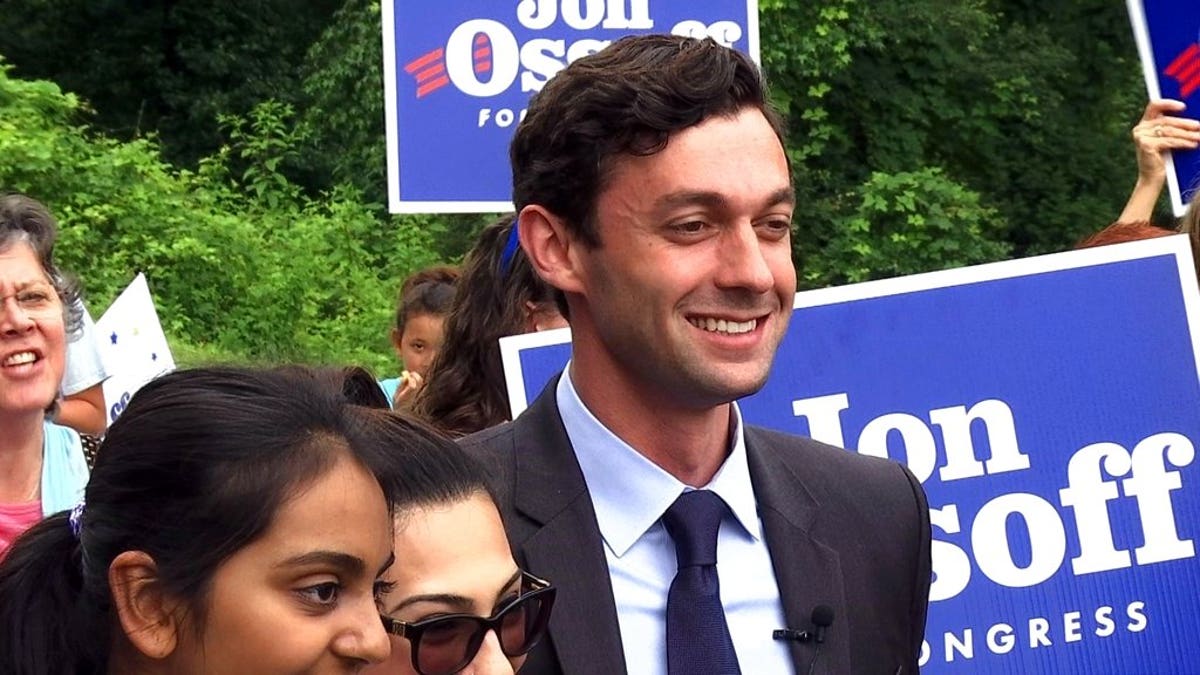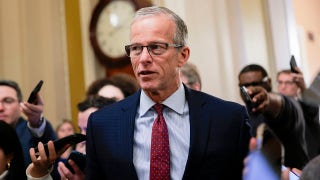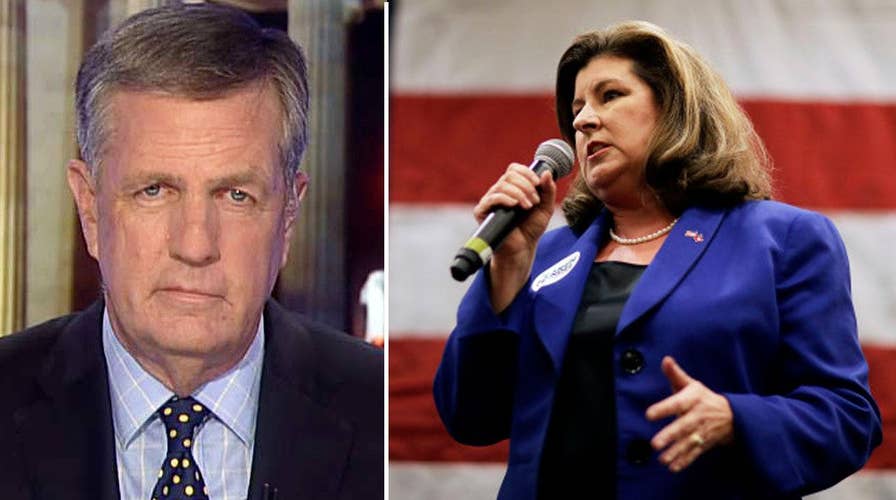Brit Hume: Impact of Ga. election exaggerated
What does it say about Democrats when most of the millions in donations for Ga. Dem congressional candidate Jon Ossoff comes from out of state and the special election is still close? #Tucker
Republican congressional candidate Karen Handel on Tuesday ripped Democratic opponent Jon Ossoff for the flood of outside donations that have pumped up his war chest and helped make Tuesday’s Georgia special election the most expensive House race in U.S. history.
Speaking on election morning with “Fox & Friends,” Handel voiced confidence about GOP turnout putting her over the top once ballots are counted.
“Republicans … are coming home to vote in this runoff,” she said.
And Handel, who plays up her experience as a state and local elected official, continued to cast her bid as a battle against outside forces trying to “buy” the 6th Congressional District seat.
“[Voters] are not interested in Hollywood and California coming in and buying this seat,” Handel said.
GEORGIA SPECIAL ELECTION: WHY IT MATTERS
The race, however, is very tight, according to recent polling.

Democrat Jon Ossoff poses for a picture with supporters outside of the East Roswell Library in Roswell, Ga., Tuesday, May 30, 2017. Early voting has begun in the nationally watched special congressional race in Georgia. Ossoff is trying for an upset over Republican Karen Handel in the GOP-leaning 6th Congressional District that stretches across greater Atlanta's northern suburbs. (AP Photo/Alex Sanz) (AP)
More than $50 million has been spent on the two candidates in the special election runoff. In terms of individual donations, Ossoff has vastly outpaced Handel, with nearly $24 million to her $4.5 million – millions more was spent by outside groups.
Most of Ossoff’s money has come from out of state, especially from states like California and New York. An Atlanta Journal-Constitution analysis showed just 3.5 percent of his donations between the end of March and May came from Georgia.
Handel has also benefited from outside spending, but it mostly hasn’t come to her campaign directly. Rather, groups like the Congressional Leadership Fund, a political action committee backed by House Speaker Paul Ryan, have spent millions on her behalf.
National Republicans' House campaign arm added $4.5 million, and the U.S. Chamber of Commerce chipped in another seven figures.
All this spending reflects just how politically important the Georgia race has become.
Another race, in South Carolina, also is being held Tuesday. Voters in the Palmetto State’s 5th Congressional District are going to the polls to determine who will succeed Mick Mulvaney – now the White House budget director -- in Congress. Millionaire developer Ralph Norman, the Republican, is favored over former Goldman Sachs tax adviser Archie Parnell, the Democrat.
Georgia’s race, by contrast, is locked up in the polls – and Democrats see it as a critical pickup opportunity after having lost two earlier special elections in Kansas and Montana. Democrats are eager to advance the narrative of voters delivering a referendum on President Trump’s policies but have yet to snag a House victory to support it.
Each candidate has heavy-hitters in their corner. Trump again took to Twitter Tuesday morning to make a closing sales pitch for Handel, writing:
“KAREN HANDEL FOR CONGRESS. She will fight for lower taxes, great health care strong security-a hard worker who will never give up! VOTE TODAY”
Handel used an election-eve rally to urge suburban Atlanta Republicans not to be wowed by the attention and money showered on this House special election.
"We cannot let up. There is too much at stake," Handel said.
Across town, an even more boisterous crowd dominated by millennials chanted "Flip the 6th! Flip the 6th!" as the 30-year-old Ossoff took the microphone.
A former congressional staffer making his first bid for public office, Ossoff has spent the monthslong campaign bouncing between excited Democrats eager to topple Trump and the independents and moderates who are unhappy with Washington yet wary about voting for a Democrat.
On the final night before voting, though, he played to the base.
"Politics does not have to be about fear and hate and deception and division," he said, avoiding mentioning Trump directly, as is his custom, but blistering "those cynics in Washington, D.C."
A gaggle of national and foreign media looked on at both rallies, a testament to how a single congressional seat has become a dominant story in U.S. politics.
The seat in play was held by Tom Price, now Trump’s Health and Human Services secretary. The seat has been represented by Republicans since 1979.
More than 140,000 voters have cast early ballots, suggesting total turnout will exceed a typical midterm election.
The Associated Press contributed to this report.













































